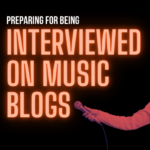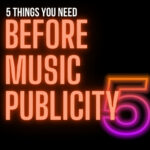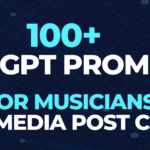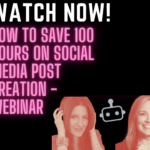1: Pick A Niche And Dominate It
There are no ultimate 100 Indie Maximum Exposure vehicles for one simple reason. Indie artists must break from a niche. That niche must be well delineated and can be very, very small and still be effective. The mistake most artists make is making a pop record that does not have a niche to break out of.
The adage, think globally act locally can be re-stated think mainstream, act niche. The newer your niche, the greater your chance of becoming identified with it. Almost every Tommy Boy superstar broke out of a niche they dominated if they did not invent. Examples: De La Soul: hip hop hippies, House of Pain – Irish hip hop, Queen Latifah: first proud and powerful African American woman in hip hop, Ru Paul, first drag queen with dance hit, and so on.
So whatever you genre, sub-genre or micro niche there will usually be media that dominates that view of reality. If you are a militant political artist, you would launch in the niche militant political blogs and magazines to establish a beach head. If you a rapper that rapped about uzis and AK’s maybe your entry would be blogs and mags about guns and ammo. David Hazan mentioned a band that was way into Anime and they get written up in the Anime blogs and make a living playing the Anime shows. Will they be able to cross to mainstream? Maybe not but they can be the lords of their niche and make a good living doing that.
So rather than being specific, I would point to blogs and mags in your micro-niche that might not even be music-oriented. You may be more news to a non-music site and reach a core audience that way than trying to get Pitchfork to discover you. There are also opportunities to perform at industry shows in non music industry events and get paid much better than you would in the glutted music market.
In other words make your presentation and target audience as unique as possible so you can be the king of that niche, then target the non-music publications (both on line and off) and the events in that niche. You will be building fans, gaining awareness and making money before you even attempt to cross into the “music industry.”
– Tom Silverman
2: Understand You Are in Two Related Industries
You are a songwriter/recording artist and need to record and release compelling music regularly (without fail). 2) You are an entertainer / performer. Your show MUST COMPEL those in the audience (no matter how few) to come to the next show with all their friends. On stage you are an actor. Your character may be yourself. But the character usually needs to be an amplified version of your normal self. Alternately, create characters.
– Rob Gordon
3: Lead A Scene
Position yourself as a leader. Put something together that doesn’t exist and get others involved.
– Derek Sivers
4: Look at What Differentiates You – Shove Yourself Into A Niche
Music fans aren’t found on sites for music fans. I’m inspired by certain things- technology, animals, politics, sci-fi/ fantasy – and so is every other artist. Whatever I’m writing about, there’s a community based around that topic. Instead of going after generic “music fan” crowds, I chose to focus on specific niches that share MY interests. Since I’m into podcasting and new media stuff, my music has been resonating particularly well with the geek crowd. That is where I focus my efforts. I’m also a big sci-fi/ fantasy nerd as well, so I hit conventions and gatherings of that nature. Not only is my music relevant to them, I can relate to them on a personal level.
– Matthew Ebel
Create a story that you can pitch to media outlets that don’t specialize in music. (You will have to figure this one out yourself).
– Tom Silverman
5: Be A Contrarian
Whatever other artists are doing in recording, performance and marketing…do the opposite.
– Tom Silverman
6: Build Your Network By Helping Others
Amber Rubarth is a 26-year-old singer/songwriter from Reno, who only started playing music five years ago, is now making a full-time living touring. She interned with a booking agent, to understand what’s she would need to do to get herself on the road. She was helpful to the agency and they in turn booked her as an opener for some high profile acts which helped launch her career.
– Derek Sivers
7: Have Professionalism!
No matter what level of “success” an artist is at, if he or she has invested time into refining and defining who they are and how they want to present their art to the world, that gets my attention. I discover just as many independent artists today as I do artists who have had extra help getting to where they are. What keeps my attention is, first and foremost, music that grabs my ear, but then the quality of the whole effort, which for me includes an artist website, not just a MySpace page, and the extent to which they have their ducks in a row, which now must start with an electronic press kit with high-res photos! I can’t tell you how many times I was able to run something in my magazine on an artist at the last minute, but a search online for a quality photo was not to be found and so they lost the opportunity.
– Erik Philbrook
8: Create Human Connection & Get In Community
Nothing beats face-to-face networking. And nothing beats a friendly a friendly email or a phone call from someone who knows I am a busy person but who nevertheless wants something from me, and can ask for it in a clear, casual and, yes, compassionate way.
– Erik Philbrook
An artist alone is in trouble – an artist in a community of artists has a chance. If you approach people you meet be they musicians or music business people with an attitude of “how can I help us” rather than “what can you do for me?” you will get much farther much faster.
– Rick Goetz
9: Set Goals & Have a Plan
Create a plan for three months, for six months, for twelve months, and for your entire career (your biggest dreams). Set goals for each phase of your plan. Add dates and measurable action steps that you will be taking to get results during each phase.
http://tinyurl.com/arielgoals
– Ariel Hyatt
10: Have a Killer Pitch
Hone your pitch so you know how to talk to anyone at anytime about who you are and what you sound like. Use this website to help you with your pitch:
http://www.15secondpitch.com
http://tinyurl.com/arielpitch
– Ariel Hyatt
11: Don’t Suck
No amount of marketing can make up for a total lack of talent- this is why people don’t want to spend $20 on major label CD’s anymore. 25 years of piano and a music degree doesn’t guarantee I’ll be a success, but it gives me one hell of an advantage. I try to keep myself sharp and never assume I’m good enough. Even long-time pro baseball players go through spring training every year. If nothing else, I find that surrounding myself with talent raises the bar for my own ambitions. I listen to Ben Folds to inspire my production and piano abilities, I follow people like Ariel Hyatt and Amanda Palmer to improve my outreach, I keep a steady stream of Pat Monahan on my Pandora list to hear what kick ass vocals sound like. I always want to be on my toes.
– Matthew Ebel
12: Don’t Measure Yourself Monetarily
The key seems to be not to measure your indie music success by monetary standards and increased sales… I can’t measure mine that way at all… I don’t have anything for sale (yet)…. The key is asking yourself: How do these tools move you forward toward bigger things happening in your career?
– Jennie Walker
13: Sometimes It’s Better To Think Small
There’s more to life than ABC and the CW. 95% of paid Synch license placements happen beyond primetime network programming, so cast your line in the ocean rather than a puddle. (NOTE: Viacom pays zilch for music placements, which is pure evil since that includes MTV and VH1. It’s amazing exposure to get placed on Real World or MADE, but there’s no paycheck.)
– Phil Putnam
14: Treat Fellow Artists As Colleagues Rather Than Competition
I’ve seen this positive, collaborative attitude pay off handsomely. A while back, I started filming artist-on-artist interviews and have met with everyone from Girl in a Coma, Amanda Palmer, Late of the Pier, The Raveonettes, Semiprecious Weapons, Aqualung, Roxy Epoxy, and 20+ more so far this year. My videos were later licensed by Viacom and played on the LOGO channel. I just posted a Raveonettes interview on my You Tube channel to honor their new album release. It was played on MTV and I got a personal thank you from them. Since I’m writing a solo album now, I’m really cherishing all the fellow artists I’ve treated as my colleagues rather than my competition. Create colleagues and community rather than cattiness and competition.
– Derek Nicoletto
15: Keep Good Company
Surround yourself both personally and professionally with people who will be straight with you. It is easy to loose the forest for the trees as an artist. You need people around you who you can trust and tell you when something you are doing isn’t working.
– Rick Goetz
16: Have Humility
It’s great that you have made this jump into the music business as if there is a net to catch you (especially when most of us are uncertain if this net will ever appear) that said – admitting what you don’t know and identifying the things you aren’t good at will make you make the right decisions in your art and your business
– Rick Goetz













Thanks. This is very helpful in a hard-hitting yet humourous (yes I’m aussie) way.
Thank God for a community of people willing to think outside the box!
It gives me hope.
Linda.
Amazing article, just what I was looking for. Thanks!